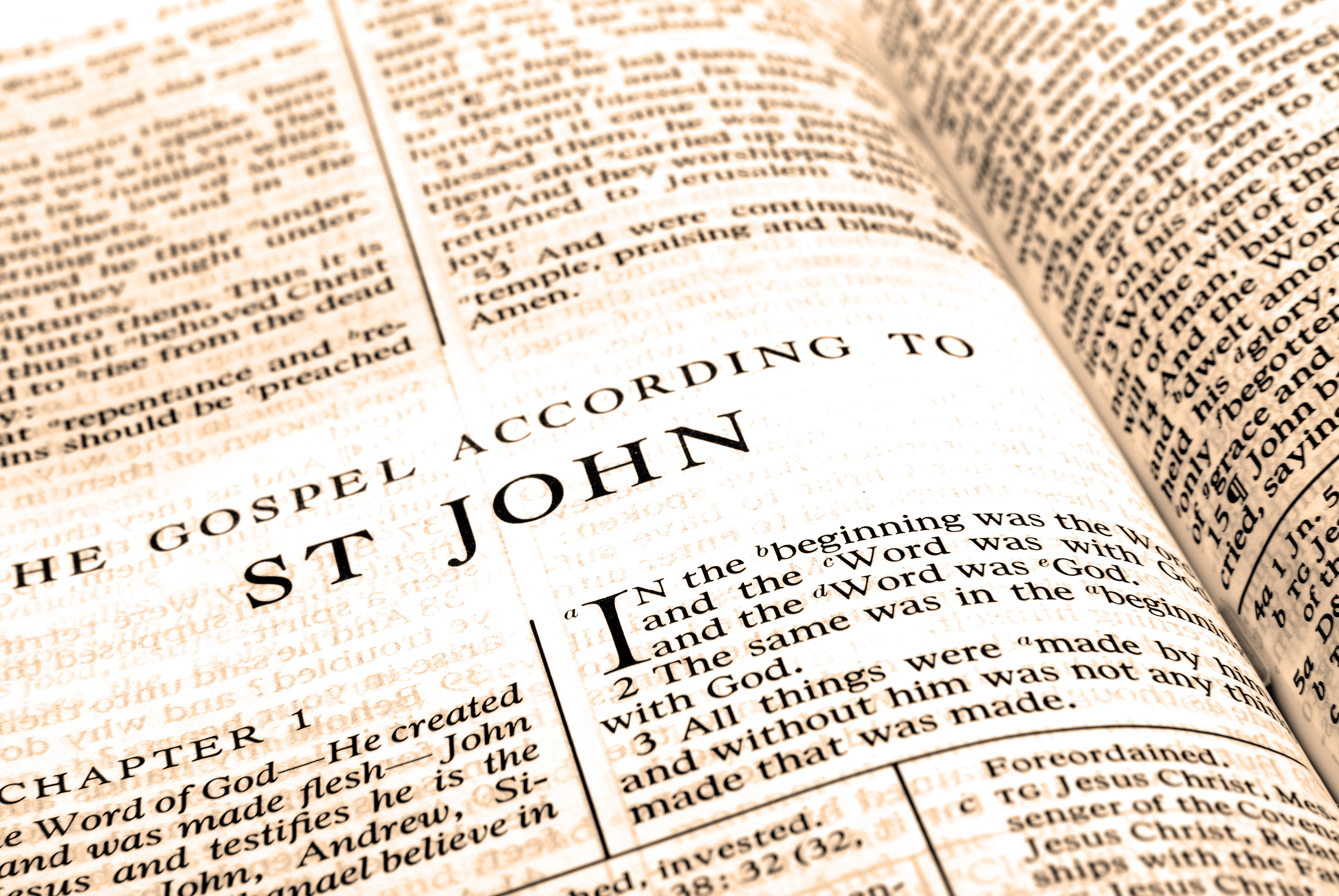Addresses to the Seven Churches in Asia

Revelation 3:7-13
Philadelphia
The address to the church at Philadelphia is the most encouraging word to the soul of the seven addresses. No rebuke is given. No criticism is implied. If I, or we, are trying our hardest to do the right thing in the right way for the right reason, it would be all too easy to assume that this letter refers to me, or to us. The devil will certainly tempt us to give way to that kind of complacency, even self-congratulation. We must be on our constant guard.
Verse 7
"He that is holy, He that is true." Most of these seven addresses present the Lord in various official capacities, referring to some part of the vision of chapter 1. Here He presents Himself in what He is personally and morally: holy and true. The end in view is that the characteristics of The Second Man (1 Corinthians 15:47) become the characteristics of the New Man (Colossians 3:10). If we are to come out manifestly in the features of the New Man, it can only be the fruit of being in personal communion with the Second Man.
"He that hath the key of David. "David was God’s anointed King, to control things on God’s behalf, to maintain God’s rights, to govern in accordance with God’s will. Likewise, there are those in the assembly who care for the rights of God. For further details, read Isaiah 22:20-25.
"He that shutteth and no man openeth, and openeth and no man shutteth." What Christ locks no man can unlock, and what He unlocks no man can lock. The door to be unlocked is the door into the bounty of God, and is outside the control of man. The Lord has absolute control. He will never give up this power to anyone else. Note the order. He is referred to as the One Who is Holy and True before He is spoken of as the One Who can unlock the door into the bounty of God. He will never unlock a door that is not marked by holiness and truth.
Verse 8
"I know thy works." He Who is holy and true and knew them through and through says, "I know thy works," yet found nothing to rebuke.
"I have set before thee an open door." Philadelphia, the name of which means "brotherly love," is about thirty-five miles south and a little to the east of Sardis. It lay on a highway in a river valley-an "open door" for trade and communications. Christ opens the door of opportunity into all the purpose and counsel of God, but closes the door against all evil. It depends on our own exercise whether or not we go through the door and enter into an appreciation of all that He makes available. These things can only be perceived by the power of the Holy Spirit and appropriated by faith, and the door is open only to those with the moral qualities stated and implied. Furthermore, if the Lord Jesus places before us an open door of opportunity, no power of Satan can stop it. Neither is there any need of human support to maintain it.
"Thou hast a little strength." They feel their feebleness and rely only on Him, not on themselves (2 Corinthians 3:5). They are not marked by any display of power that would attract the attention of the world, or please the flesh. But behind their felt weakness there is the mighty power and strength of the Lord Himself supporting them. The Philadelphians accepted the support of the One Whom the saints at Pergamos rejected for the support of the world.
"[Thou] hast kept My word." What they have kept (guarded, taken care of, kept secure) is not their own. It belongs to Him. His word is His revealed mind, the overall scope, not only the details (His words).
"[Thou] hast not denied My name." They are here on earth for His interests, not their own (see contrast in Philippians 2:21). They are here for Him, at whatever personal cost, to maintain His claims in a world that has rejected Him.
Verse 9
"Them of the synagogue of Satan." The only opposition spoken of comes from the Synagogue of Satan. This suggests that which is ecclesiastical: ecclesiastical opposition, ecclesiastical persecution, ecclesiastical corruption.
"Which say they are Jews, and are not." As at Smyrna, so at Philadelphia, it was necessary to warn of those who made the claim to be "Jews and are not." The term is used symbolically. There were those at Philadelphia who were asserting that they were the true Jews, of a higher religious calibre than others, and worthy of special blessing. But the Lord Himself, Who knew them through and through, says of them that they are not Jews! They were guilty of elitism, self-elevation to a higher class. It was necessary for the Lord to denounce them for the lying impostors that they really were.
"I will make them to come and worship at your feet." As at Sardis, faithfulness to Christ involved rejection by the Jewish ecclesiastical community, excommunication from the Jewish synagogue and exposure to extreme Roman pressure to worship Caesar. They are promised that their persecutors will ultimately have to bow in deference to them. Whatever the Jews and Romans may have thought lay within their control, only the Holy and True One has the power to open and shut doors.
"And to know that I have loved thee." Everything is due to and the fruit of His love, not their love.
Verse 10
"Kept the word of My patience." The days of endurance of Jesus Christ, requiring continual patience, will go right on to His Coming. Those who are faithful do not seek to anticipate His Coming by desiring to reign now (compare with 1 Corinthians 4:8).They are content to share His rejection, and to show the same moral virtues of patience and endurance as He does (see chapter 1:9; 2 Thessalonians 3:5; 2 Timothy 2:12).
"I also will keep thee from [out of] the hour of temptation." There could be no thought of the church going through The Great Tribulation. We shall be "taken out" from the world before the wrath of God comes upon it. In The Epistles to the Thessalonians there are repeated reminders that Christians need have no fear of the "wrath" that shall come upon the world, whose people are described here morally as earth-dwellers, completely earth-centred.
Verse 11
"I come quickly." As with Thyatira, Sardis, and Laodicea, the details taken account of at Philadelphia depict a spiritual condition and phase in the history of the Christian church which will run on to the Coming of the Lord for His own. When that moment comes, there will be no delay (Matthew 24:36; Mark 13:32; Hebrews 10:37).
"Hold fast" (hang on!) The great danger in Philadelphia is giving up. It is necessary for a Philadelphian to overcome because he might otherwise give up.
"That which thou hast." That which is gained in true exercise of soul before the Lord against a background of opposition to Him will never be lost.
"That no man take thy crown." The crown is the mark of the victor. If a man gives up, he can hardly be called a Victor. He cannot be said to have earned a crown.
Notice the sequence: verse 9 "I have loved thee," verse 10 "I will keep thee," verse 11 "I come quickly."
Verse 12
There is a clear commendation and reward for the overcomer, committed to be faithful to the Lord in His absence, in an evil day, whatever the enmity and opposition. The faithful overcomer is promised, in present soul appreciation, what, as to manifestation, must await the world to come (the Millennium) and eventually, in its fullness, eternity (the Eternal State).
We read in Genesis 11:4 that God confounded men’s attempts to build for themselves a city, a tower (pillar), a name. The overcomer is promised from God what men cannot and will never be allowed to build for or by themselves.
"Pillar in the temple." The pillar (compare with 1 Timothy 3:15) is to do with the display (a major "temple" concept) of one who has been supporting the truth, bearing witness in the power of the Spirit, and adorning the doctrine. Christian witness and influence persisted longer at Philadelphia than in any other of the seven churches. Aptly, there is a pillar of an eleventh century church (named appropriately St. John’s!) still standing in Philadelphia. A bronze plaque inscribed with the text of this letter to Philadelphia has been mounted on the remaining pillar. It must be significant that God in His mercy has allowed to be preserved down the centuries a testimony, in the very form of a pillar, to the moral worth of some of His early saints in that locality.
"He shall go no more out." When these scriptures were written, earthquakes were quite common in and around Philadelphia. Long experience of the ambient conditions enabled the local population to realise when an earthquake was imminent. Fearful of being injured or even killed by the debris from falling buildings, many evacuated the built up area, "going out" to the comparative safety of the surrounding countryside, to live temporarily in makeshift tents outside the city till the danger was over. Believers would be encouraged to know that the day would come when they would have to "go no more out" to escape danger. More positively, in the Millennium, everything will be an answer to what has happened in this world. All will be "at rest." Then, in the Eternal State, everything will be in accordance with the will of God, outside of responsibility altogether.
"I will write" - not only a divine Speaker, but a divine Writer.
"The name of My God, and the name of the city of My God, New Jerusalem, which cometh down out of heaven." The overcomer is given a personal appreciation of that which is dear to the heart of God, and His Christ. The overcomer can move through this life with the name of his God written upon him in a way that is manifest to others. The New Jerusalem (see also 21:2; compare with holy Jerusalem, 21:2; and heavenly Jerusalem, Hebrews 12:22), will be a city where everything is pure and transparent and will display the glory of God eternally. The Philadelphian saint is so great, morally, that he is written upon with something that is eternal in character.
"My new name." The personal pronoun "My" is prominent throughout the letter. All that is available to the saints today is administered under His Personal Lordship. The new name by which Christ will be fully manifested will come to light in the world to come, but it hasn’t come to light yet. There are matters connected with divine, spiritual, eternal things that we cannot assimilate yet, but we shall.
Verse 13 - Final challenge
"He that hath an ear, let him hear what the Spirit saith unto the churches." A Philadelphian is one who is separate from the formalism of Sardis and the infidelity of Laodicea, and is true to all that Christ has revealed to him. Those who are truly Philadelphian don’t talk about it; they manifest it. The danger is that it is very easy in attempting to take high (ecclesiastical) ground to slip from Philadelphia into Laodicea. A Laodicean is one who has Philadelphian light without Philadelphian character. Every true Philadelphian willingly submits to the control of the blessed Person Who alone can open and shut doors.
I, and we, cannot and must not CLAIM to be Philadelphia, as individuals or as a local assembly. At the same time, I and we can and should AIM to be Philadelphian in character, seeking to be preserved from thinking more highly of ourselves than we ought to think (Romans 12:3). It is not CLAIMING a POSITION or STATUS, but AIMING to be in a CONDITION, that counts. We would be well advised to look for Philadelphian qualities in other believers and guard against Laodicean tendencies in ourselves.




